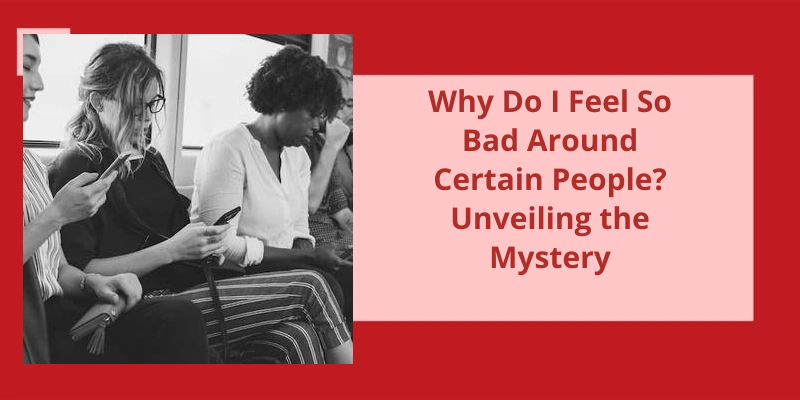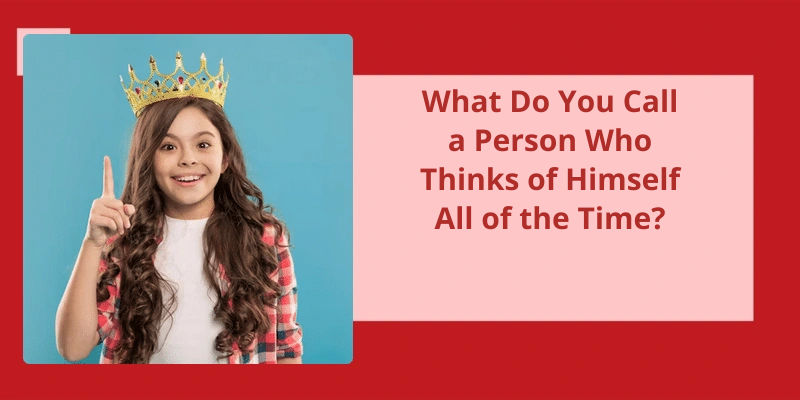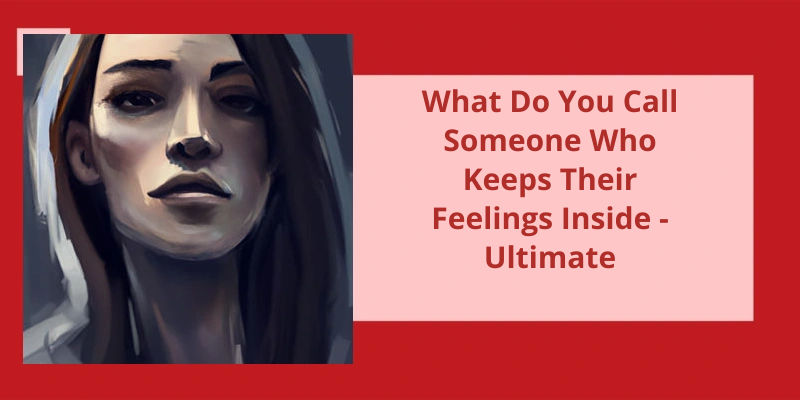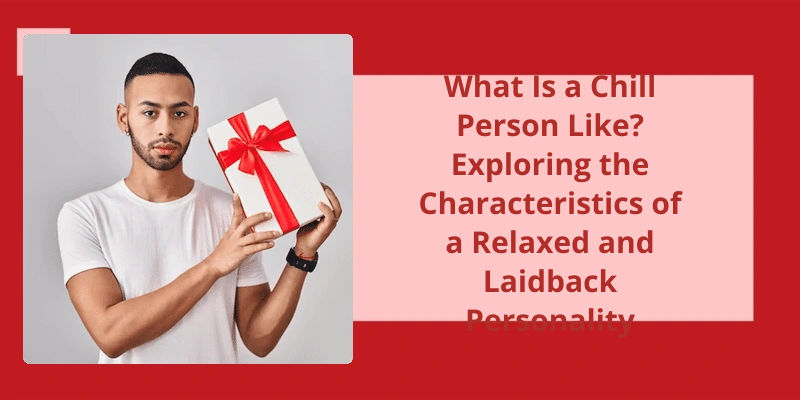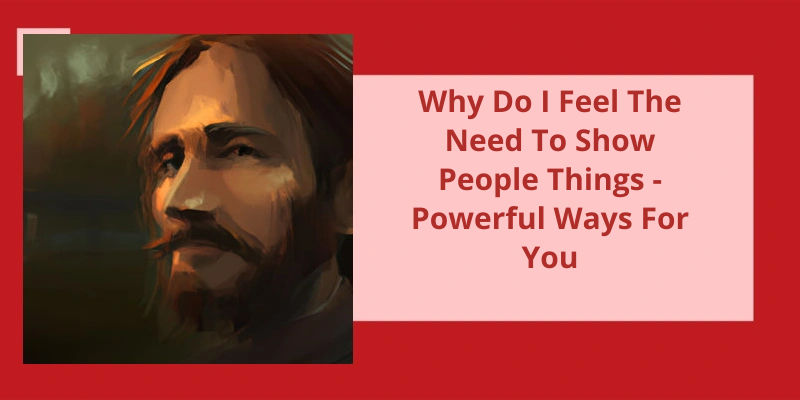Have you ever found yourself feeling a sense of unease or discomfort when you're around certain people? Perhaps it's a coworker, a family member, or even a close friend. You can't quite put your finger on it, but something about their presence just makes you feel bad. It's a perplexing mystery, perplexing enough to make you wonder, why do I feel so bad around certain people? There could be multiple reasons for this unsettling feeling. One possibility is that you’ve deep feelings for this person, and their mere presence ignites a whirlwind of emotions within you. Alternatively, it could be that the person in question exudes toxic energy, leaving you feeling drained and uneasy. Intimidation might also play a role, as some individuals have a knack for making us feel small and insignificant. Another explanation lies in the realm of social anxiety or a lack of social skills. The fear of saying the wrong thing or experiencing an awkward silence can lead to an overwhelming discomfort. Ultimately, unveiling the mystery behind why you feel so bad around certain people requires a closer examination of both your own emotions and the dynamics of the relationships you share with them.
Why Do I Feel Weird When Someone Does Something Nice for Me?
Many people experience a profound sense of discomfort when someone does something nice for them. It’s a situation that can leave them feeling strange and uneasy. While there may be many reasons for this phenomenon, one possibility is a lack of self-confidence. Individuals who struggle with self-doubt often find it difficult to accept acts of kindness because they believe they don’t deserve them.
For some individuals, self-criticism is a constant companion. No matter how much they achieve or how much praise they receive, it never feels like enough. This relentless self-judgment not only affects their perception of themselves but also colors their reactions to the kindness of others. They may view the gestures as insincere or wonder what the ulterior motive behind them might be.
Additionally, feeling uncomfortable when people are kind to you might stem from a fear of vulnerability. Accepting kindness requires opening yourself up to another persons positive regard, which can make you feel exposed and vulnerable. If youve been hurt or let down in the past, it may feel safer to maintain a guarded stance rather than risk being hurt again.
Another factor that can contribute to this discomfort is a fear of dependency. Some individuals associate receiving kindness with loss of independence or control. They may have grown up being praised for their self-sufficiency and resilience, and the idea of needing support from others can challenge their sense of identity.
It’s important to remember that acknowledging and addressing these feelings can be a first step toward healing and developing healthier relationships with others. Seeking support from a trusted friend or therapist can offer a safe space to explore and work through these emotions.
Understanding the underlying reasons behind one’s aversion to social situations can provide valuable insight into the complex nature of this discomfort. It’s important to recognize that factors such as past traumatic experiences, stress-induced behaviors, and mental illness can all play a role in one’s dislike of being around people. Conditions like social anxiety disorder or depression can amplify negative feelings and further contribute to this aversion.
Why Do I Not Like Being Around People?
The reasons behind ones aversion to being around people can be multifaceted and deeply rooted. Understanding and unraveling these reasons requires a comprehensive examination of past experiences, mental health conditions, and stress-induced behaviors. It’s crucial to recognize that everyones experiences are unique, and ones reluctance to socialize may not have a single, clear-cut explanation.
Past traumatic experiences can significantly impact how individuals perceive social situations. Negative encounters or instances of betrayal can foster distrust and apprehension, making it challenging to form connections with others. These experiences can leave deep emotional scars, leading to a general aversion to being around people.
Stress-induced behaviors can also contribute to the dislike of socializing. When overwhelmed or anxious, some individuals may withdraw from social situations as a way to protect themselves from further stressors. Their avoidance stems from a desire to avoid potential judgment, criticism, or rejection that can intensify their already distressing feelings.
Mental health conditions, such as social anxiety disorder and depression, can heighten negative emotions towards spending time with others. Social anxiety disorder causes individuals to fear judgment and embarrassment in social settings, leading them to avoid interactions altogether. On the other hand, depression can create a pervasive sense of emptiness, sapping the desire for social connection and making it difficult to engage with others.
Furthermore, introverted personality traits can also contribute to an aversion to socializing. Introverts naturally derive energy from solitary activities and introspection and may feel overwhelmed or drained in social settings. They may prefer smaller, intimate gatherings or one-on-one interactions that allow for deeper connections rather than large social gatherings.
Understanding these complex factors will require a compassionate approach and a willingness to explore past experiences, mental health conditions, and individual personality traits. Encouraging open dialogue and seeking professional help when needed can provide invaluable insight and support on this journey.
Source: Why do I dislike being around people?..
Maybe you fear that you don’t deserve the kindness being bestowed upon you, leading to feelings of guilt or unworthiness. It’s possible that you struggle with vulnerability and feel uneasy when others show genuine concern for you. Whatever the underlying cause may be, understanding and addressing these emotions can help you navigate through these situations more comfortably.
Why Do I Get Anxious When People Do Nice Things for Me?
Or maybe you’ve a fear of being vulnerable and dependent on others, causing you to feel anxious when someone does something nice for you. It could be that you’ve had negative past experiences where people have used kindness as a means to manipulate or control you, leading to a sense of distrust and unease. Alternatively, you might have low self-esteem and struggle to believe that you’re worthy of receiving kindness and love from others.
Another possibility is that you’ve a tendency to overanalyze and overthink situations, especially when it comes to interpersonal relationships. This introspective nature can make you hyperaware of your own emotions and reactions, making it difficult to fully embrace and accept acts of kindness from others. You may find yourself questioning the motives behind their actions and doubting their sincerity, leading to feelings of anxiety and discomfort.
Furthermore, you might have a fear of being indebted to others. When someone does something nice for you, it can create a sense of obligation and pressure to reciprocate in some way. This feeling of indebtedness can be overwhelming and leave you feeling anxious and uncertain about how to respond. Additionally, you might be afraid of disappointing others or not living up to their expectations, which can contribute to your anxiety in these situations.
It’s important to remember that everyone experiences emotions differently and what causes anxiety for one person may not affect another in the same way. Understanding and acknowledging your own feelings is the first step in unraveling the mystery of why you feel so bad around certain people. By exploring the potential underlying causes and seeking support, whether from friends, loved ones, or a professional, you can work towards finding ways to feel more comfortable and at ease in these situations.
Coping Mechanisms for Managing Anxiety When Receiving Kindness
- Deep breathing exercises
- Meditation
- Progressive muscle relaxation
- Journaling
- Talking to a trusted friend or family member
- Engaging in physical activities or exercise
- Practicing mindfulness
- Engaging in hobbies or activities that bring joy
- Seeking professional help or therapy
- Using positive affirmations
- Practicing self-care activities
- Avoiding excessive caffeine or alcohol consumption
- Setting boundaries
- Trying relaxation techniques such as aromatherapy or listening to calming music
Dealing with someone who consistently makes you feel bad can be challenging and emotionally draining. However, it’s crucial not to play into their reality or get drawn into their negative behavior. Instead, focus on how their actions make you feel and consider discussing their behavior with them. Prioritizing your own well-being is vital, and offering compassion without trying to fix them is important. Remember, saying no and distancing yourself from toxic individuals is perfectly acceptable, and it’s crucial to remind yourself that their behavior isn’t your fault.
How Do You Deal With Someone Making You Feel Bad?
Have you ever wondered why certain people make you feel so bad? It can be a mystery to unravel and understand. When faced with such individuals, it’s important to know how to respond effectively. One key strategy is to avoid playing into their reality. Recognize that their behavior is a reflection of their own issues and insecurities, and try not to let it affect your sense of self-worth.
Another important step is to resist getting drawn into their negativity. These people may try to provoke or manipulate you, but if you remain calm and refuse to engage, you can maintain your own emotional well-being. Instead, focus on your own feelings and pay attention to how they make you feel. Acknowledging your own emotions is a crucial part of taking care of yourself.
If the relationship is significant enough, you might consider talking to the person about their behavior. However, approaching the conversation with caution is essential. Rather than accusing or blaming, try to express your feelings and concerns calmly and assertively. This can create an open dialogue and provide an opportunity for them to reflect on their actions.
While it’s natural to feel empathy and compassion towards others, it’s essential to remember that you can’t fix or change someone elses behavior. It isn’t your responsibility to solve their problems or make them think differently. Instead, focus on your own well-being and put yourself first. Set boundaries and prioritize your emotional health.
Sometimes, the best response is simply to say no and walk away. Recognize that you’ve the right to remove yourself from toxic or unhealthy situations. Understand that your happiness and well-being shouldn’t be compromised for the sake of someone elses negativity.
Finally, it’s important to remind yourself that you aren’t at fault for someone elses behavior. Their actions and reactions are their own responsibility, and you aren’t to blame. It can be difficult not to internalize their negativity, but remember that their behavior is a reflection of them, not you.
Many individuals find it challenging to accept compliments for various reasons. According to Lisa Schuman, a therapist and social worker, this discomfort can stem from factors like low self-esteem or a lack of previous exposure to positive emotions such as gratitude.
Why Do I Feel Weird When People Say Nice Things to Me?
Why do I feel weird when people say nice things to me? This inexplicable discomfort in response to compliments can be puzzling, yet it’s a common phenomenon experienced by many individuals. According to Lisa Schuman, a therapist and social worker, various factors can contribute to difficulties in accepting compliments. These range from low self-esteem and a lack of experiences with gratitude to internalized negative beliefs about oneself.
When someone praises us or expresses kindness, it can trigger a mix of emotions and thoughts, causing us to feel uneasy or suspicious. Our inner critic may jump in, dismissing the compliment and questioning it’s sincerity. This self-doubt is often fueled by long-standing negative beliefs we hold about ourselves, which can make it challenging to genuinely accept positive feedback. We may feel unworthy or question why someone would say something nice about us.
Additionally, a lack of exposure to positive experiences or gratitude can hinder our ability to accept compliments. If we’ve never received much praise or validation in our lives, it can feel unfamiliar and unnatural when someone genuinely expresses admiration or appreciation. Our mind may struggle to process this unfamiliar territory and try to protect us from potential disappointment or vulnerability.
In some cases, feeling uncomfortable with compliments might also be a result of imposter syndrome, a psychological pattern where individuals doubt their accomplishments and fear being exposed as frauds.
Understanding why we feel strange when people say nice things about us can be a complex journey. It’s essential to acknowledge and explore the underlying emotions and beliefs that contribute to our discomfort. Through self-reflection, therapy, and practicing self-compassion, we can gradually shift our mindset and learn to embrace the positivity and kindness that others offer.
Conclusion
In conclusion, the feeling of unease or discomfort around certain individuals can stem from a variety of reasons, each unique to our own experiences and emotional makeup. It may arise due to unexpressed romantic feelings, the presence of toxic or intimidating individuals, or even our own social anxieties and insecurities. Understanding the root causes of these uneasy feelings is essential in navigating our relationships and working towards personal growth. By acknowledging and addressing these emotions, we can strive to create healthier connections and ultimately foster a greater sense of well-being in our interactions with others.

